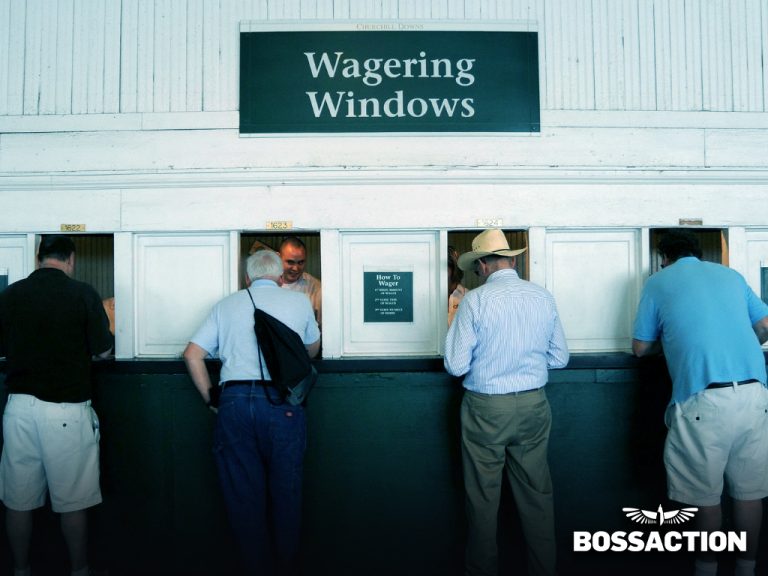If you want to be a bookmaker, there are a lot of different things you need to learn, including understanding deposit methods.
Most inspiring bookmakers want to first learn about setting bets and working odds but there’s one important area that many overlook – taking deposits.
Taking deposits from your customers is a vital bookmaker task but a surprising amount of bookmakers don’t learn about deposits and depositing methods until later in their training and learning.
If you want to get ahead of the rest, then this guide is for you. Here, bookmakers can learn everything they need to know about deposits and deposit methods. So, check out the guide below and enjoy!
What Are Deposits In Betting?
First, let’s cover the basics – like what even are deposits? Why are they so important for bookies?
Once you understand what deposits are, you will have a much better idea of all the deposit methods out there for bookies like you to consider offering your customers.
Defining Deposits
Deposits have the same definition as they do across all financial businesses. A deposit refers to a set amount of money that is transferred to a certain financial institution with the intention of later use.
For betting shops and businesses, a deposit is a set amount of funds a customer or client moves into the account they have with the business so they can later use that money to make bets.
This makes it easier for customers and clients to make bets whenever the odds change, rather than waiting for ages for money to be transferred. This is why so many betting businesses offer personal accounts for each customer.
Deposit Rules For Bookmakers
Most bookmakers set their own rules when it comes to accepting deposits from their customers and clients.
Here are some rules you can consider as a bookie when laying down the groundwork for your process of accepting deposits from your customers:
- Deposit Limits – Deposit limits are used to determine how much money a customer can deposit into their bookmaker account within a timeframe. For example, a bookmaker may limit their clients to only $10 deposits a day, or $50 deposits a week. Other bookmakers allow their clients to set their own limits so they have better control over their own funds.
- Minimum Deposit Amounts – Certain deposit methods will charge the bookmaker fees (more on that later) and to help cover the cost of these fees, bookmakers will require their customers to transfer a set amount of cash. After all, why should you pay $3 to transfer just $1 from your client’s bank account to their bookmaker account?
- Maximum Deposit Amounts – Clients suddenly transferring thousands of dollars into their bookmaker account can be incredibly fishy so many bookmakers set a maximum deposit amount to try and deter and avoid any fraud.
In some countries, the law regulates these deposit rules for bookmakers. As a bookmaker, you need to be familiar with the legal requirements for how you set the rules of accepting deposits from your customers.
You don’t want to end up in legal trouble by setting the wrong deposit limit for your country!

Deposit Methods: What Are They?
Now you understand what deposits are, understanding deposit methods is easy.
It refers to the payment method the customer uses to transfer their funds into their bookmaker account.
There are several different types of deposit methods out there and it’s up to the bookmakers to decide what payment methods they want to offer to their customers.
Most bookmakers end up offering several types of deposit methods as the more options their clients have, the more likely they are to open an account and make a deposit.
However, this doesn’t mean bookmakers can use each and every single deposit method – there are advantages and disadvantages to each one and ultimately, bookmakers need to evaluate their needs to find the right deposit method for them.
So, as a bookmaker, what factors should you consider when choosing the right deposit methods for you and your business?
Speed
Different deposit methods offer different speeds when it comes to how fast the funds leave one account and appear in another.
Some methods are almost instantaneous while others can take a few days for the funds to finally transfer over (usually for anti-fraud purposes, security, etc).
The last thing both bookies and their customers want is for money to take forever to transfer from one account to another – so it’s in both parties’ interest for bookmakers to offer deposit methods with fast transaction times.
Deposit Methods Fees
No one likes paying fees to third parties but unfortunately, certain deposit methods charge transaction fees and these can vary in cost.
For example, bookmakers will be charged transaction fees by banks or e-wallets like PayPal.
As the bookmaker, you have a choice – you can either roll this fee onto your customers and charge them an additional fee to cover the transaction or just accept the fee and set minimum deposit amounts to ensure that the deposit is worth the effort.
Most bookmakers don’t charge their customers as it can work against them and push their customers toward their rivals instead. However, it’s still something you may want to consider.
If you do choose to pay the fees yourself, then you will want to find the deposit methods with the lower fees.
Availability
Certain deposit methods are unavailable in certain countries.
For example, the United Kingdom has banned credit cards as a legal deposit method. This means that bookies in the UK or bookies accepting deposits from the UK cannot accept deposits paid via credit cards.
As a bookmaker, you will need to research what deposit methods are available and legal in your country and state.

The Different Deposit Methods For Bookies
Now you know what to consider when evaluating what deposit methods you want to offer customers, it’s time to take a look at some of the most common methods offered by bookmakers.
Check them out below to learn what they are and what advantages and disadvantages they offer both you and your customers.
Debit And Credit Cards
Debit cards are one of the most accessible deposit methods for bookies as nearly everyone has a bank account and a debit card.
As they go through banks, bookies have more wiggle room when it comes to setting minimum and maximum deposit amounts. Plus, banks tend to offer lower transaction fees so this is a more affordable option for bookmakers.
The only drawback is that transactions can sometimes take a day or two to go through, making them slightly slower than other methods in this list.
However, the benefits tend to outweigh the disadvantages here, which is why debit cards are so often used to make deposits.
Credit cards share many of the same benefits but in certain places, the law can restrict the use of credit cards in making deposits – so this method may not be open to you depending on where you live and where your customers are making deposits from.
E-Wallets
E-wallet deposit methods have a lot of advantages for customers but there’s a drawback that makes them a little less appealing to bookies.
While this method is very speedy (although transaction time will vary from platform to platform), they tend to offer higher transaction fees that can eat into a bookie’s operation costs.
So, while customers love the accessibility and speed of e-wallets, bookmakers need to check what kind of fees they can expect from various e-wallet platforms. Some great examples of e-wallet platforms include PayPal, NETELLER, Apple Pay, and Google Pay.
Bank Wire Transfers
Wire transfers move funds from one account to another internationally and are usually performed by banks.
They are very simple and easy to do but the main drawback is that funds can take anywhere between 1 to 5 working days to fully move over. This makes them one of the slowest deposit methods out there.
They also offer very high limits for bookmakers, making it possible for you to accept some pretty large deposits.
However, this isn’t an offer available for just any bookmaker and is usually reserved for larger bookmakers like bet365. So, this isn’t an advantage you are likely to benefit from.
Final Deposit Methods Thoughts
So, that’s everything you (and other bookmakers) need to know about deposit methods.
As you can see from the guide above, there are lots of factors to consider when evaluating the best deposit method for you.
You also need to consider your customers’ needs and make compromises so both your customer and your business can benefit from the deposit methods you choose to offer.
We hope you found this guide helpful and now, you have a much better understanding of deposit methods!
Frequently Asked Questions
Withdrawals and deposits go together hand in hand. Once you understand what deposits are and how they work, then understanding withdrawals is even easier.
Withdrawals are the transfer of funds from the bookmaker to a customer or client’s bank account.
They are usually done after the client or customer receives winnings from a bet and they want to move the money to their bank account to spend elsewhere.
Basically, they are the inverse of a deposit. Deposits are funds transferred from the client to the bookmaker, withdrawals are funds transferred from the bookmaker to the client. It’s easy!
Certain bookies do accept cash deposits if typically only if they have a location where cash can be handled by their workers and their customers.
Most online-only bookmakers may struggle to find ways to accept cash deposits as these require more fees to be processed and transferred.
You May Also Like:




